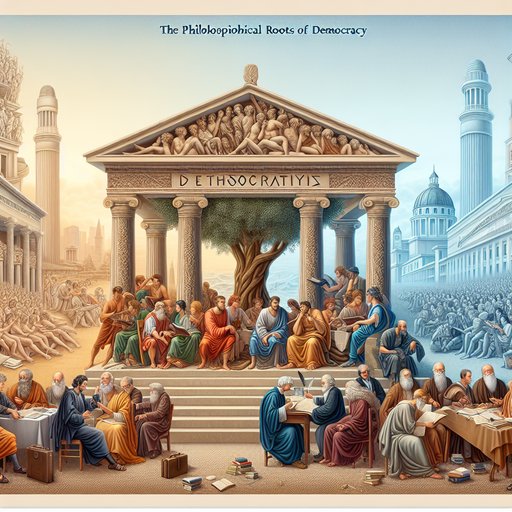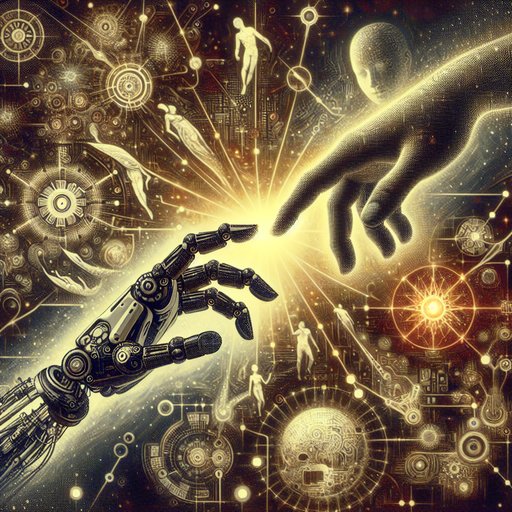
In the vast tapestry of human history, the emergence of democracy and constitutional governance stands as a defining chapter. The philosophical underpinnings of these societal developments reveal not only the evolution of political thought, but also offer profound insights into human existence and ethics. The story begins in ancient Greece, traces through the enlightenment era, and culminates in the modern democratic societies we see today.

Once upon a time, in a small town lived a man named Giorgio. Undeterred by the simplicity of his existence, he found himself regularly plunged into profound philosophical musings and existential ponderings. His particular fascination lied in grappling with questions of human existence, a cerebral expedition full of paradoxes about the meaning of life, mortality, and constant societal evolution.
 In an era increasingly defined by burgeoning technology, age-old philosophical questions of human existence, ethics, and societal evolution are challenged and brought to the forefront. As new technologies continually dissolve boundaries of what was once deemed impossible, philosophers grapple with the ethical ramifications these advances pose for humanity. Central to these struggles are the profound implications new technologies hold for our understanding of human nature and the values that govern societal interaction.
In an era increasingly defined by burgeoning technology, age-old philosophical questions of human existence, ethics, and societal evolution are challenged and brought to the forefront. As new technologies continually dissolve boundaries of what was once deemed impossible, philosophers grapple with the ethical ramifications these advances pose for humanity. Central to these struggles are the profound implications new technologies hold for our understanding of human nature and the values that govern societal interaction.
 With the advent of artificial intelligence and its impact on human lives, existential questions float around whether AI and robots are successors to our species or the harbingers of a new phase in human existence. This story develops upon the philosophies of human existence, ethics, and societal evolution in the light of the AI revolution.
With the advent of artificial intelligence and its impact on human lives, existential questions float around whether AI and robots are successors to our species or the harbingers of a new phase in human existence. This story develops upon the philosophies of human existence, ethics, and societal evolution in the light of the AI revolution.



































































